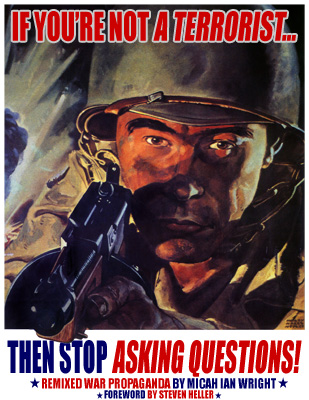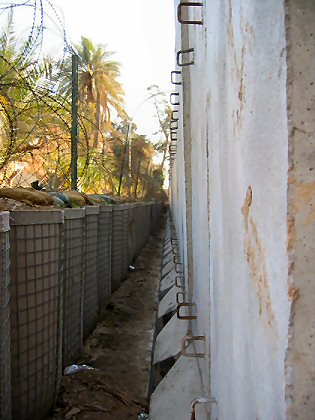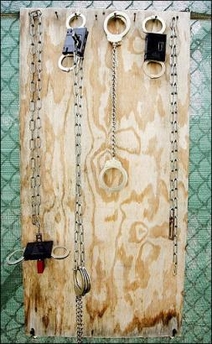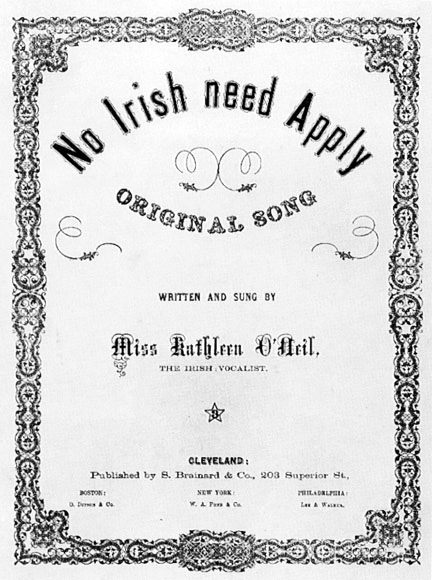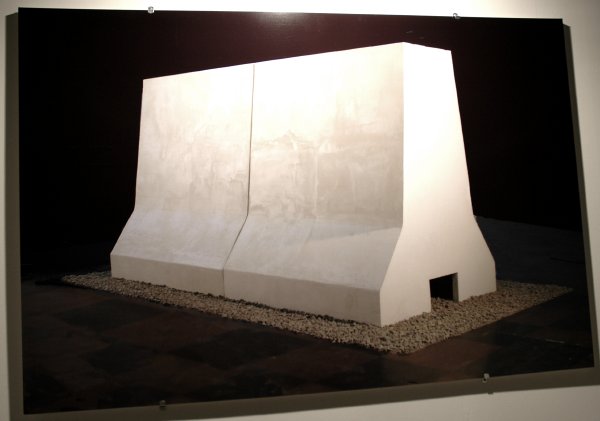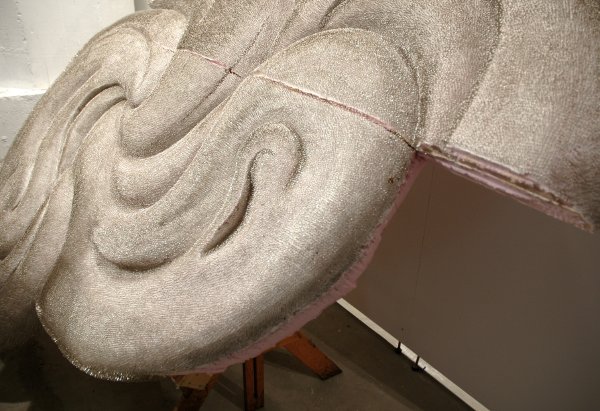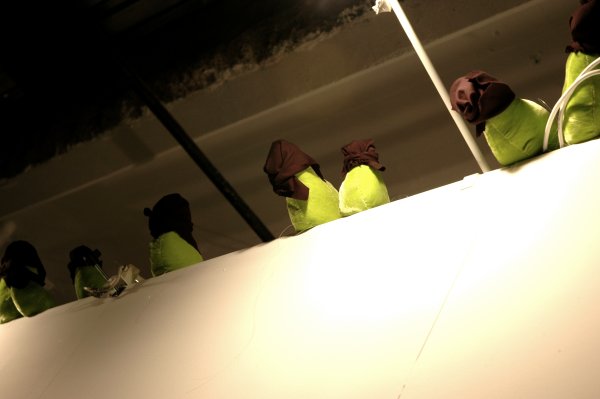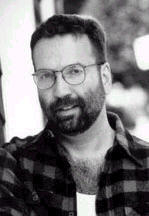
Eric Rofes
Eric Rofes died on Monday.
This remarkable and very gentle activist was one of the most important voices to ever represent the "sexual outsider" - meaning effectively just about everyone who's ever done the thing, or even only thought of doing it, and still of course all women, as charter members of the tribe. Rofes was an individual thinker and mover, and as his own queer sub-community became more and more interested in pursuing an elusive and illusory respectability he often found himself a voice crying in the wilderness - when his arguments were not actually demonized, described as monstrously sexually-compulsive.
In the death announcement on the PlanetOut site, Richard Burns, executive director of New York's Lesbian, Gay, Bisexual and Transgender Center, is quoted: "He was a critical thinker and someone who didn't feel it was necessary to go with the flow in his analysis. He believed we needed to build a healthy community and respect adult sexual decisions and not pathologize or infantilize gay men's sexual lives. In the face of HIV/AIDS that was not always a popular view."
Ben Shepard, who also knew Rofes as a friend and a fellow activist, has written this memorial:
GOODBYE TO ERIC ROFES
I just got word that Eric Rofes died of a heart attack. I had known Rofes since our time in San Francisco with Shanti Project in the early 1990's. We reconnected together in the late 1990's doing SexPanic! stuff in 1998. He was a caring voice who hoped for pleasure to be part of our democracy. He argued for this, screamed about it, yearned for it. When he was attacked he fought back about it. And many attacked Rofes. They attacked him for wearing leather when he testified at the National AIDS Commission in San Francisco. He was criticized for embracing Walt Odets and the notion of survivor guilt among gay people who had lost whole cohorts of friends to HIV. And he was attacked when he ran Shanti Project. But he kept going. And he kept on asking people to think about the complexity of their lives and struggles and emotions. After leaving Shanti Project, he earned at PhD at Berkeley and wrote two enormously influential books, Reviving the Tribe: Regenerating Gay Men's Sexuality and Culture in a Period of Ongoing Epidemic and Dry Bones Breathe: Gay Men Creating Post AIDS Identities and Subcultures. Both were enormously important, contextualizing the losses to community, pleasure, friendship, and social knowledge of the connection between public sexual space and community organizing with the AIDS years. Early in Reviving the Tribe, Rofes wrote about standing with tears in front of a sex club where he had once enjoyed so much pleasure. Rofes was intensely aware of the multiple losses to AIDS and the need to think through what was going on. "I believe that any hope for collective survival is rooted in the realities of our lives, however, harsh and seemingly unacceptable," Rofes wrote. "Our inability to continue confronting the ever-intensifying manifestations of AIDS has brought us to the point of paralysis."
Rofes railed against those who suggested gay men should just 'grow up' and reject public sexual culture. "Even a cursory look at the histories of our movement will show that sexual liberation has been inextricably bound together with gay liberation, the women's movement, and the emancipation of youth," he wrote. He suggested a vast cultural amnesia was taking place as the lessons of the gay liberation years were lost amidst panic over continued rates of HIV. Rofes was keenly aware of the complexity of questions of sexual self determination. "For many, the forbidden becomes desired; taboo produces cravings; the return of the repressed is made corporeal and is experienced as an enormous hunger," he wrote in his newest book. He was always aware telling gay men or anyone to just say no served no one's ends but the moralists. Thus, HIV prevention would have to be considered within a broad holistic, harm reduction approach. For Rofes, there was far more to the question of pleasure than just getting off or male privilege. Central principles of democracy in America lay at the core of the sex panic question. Rofes wondered, can you lose your job for deviating from conventional sexual norms? For many, the answer is affirmative. Like so much else within our democracy, what one person enjoys, another will inevitably find offensive, he counseled. Variation is a core component of social life. And some people built alternative kinship networks. This should not be condemned, at least not in a pluralistic democracy. "Among the most effective ways of oppressing a people is through the colonization of their bodies, the stigmatizing of their desires, and the repression of their erotic energies," he claimed during the National Gay and Lesbian Task Force's Creating Change Conference San Diego, November 16, 1997. "We believe continuing work on sexual liberation is crucial to social justice efforts," (see complete speech here).
In 1998, Rofes came to New York to speak on a panel for the one year anniversary of SexPanic! and contacted me. I had just finished a book about the San Francisco AIDS years (White Nights and Ascending Shadows: An Oral History of the San Francisco AIDS Epidemic) and he wanted to talk about the book. We talked about survival, the capacity for resiliency, and the hope for a lusty pleasure in a democracy. I told him about my work with the group as a kinky straight man and he encouraged me to push forward and help forge a different kind of politics based in caring connection and social justice rather than identity, despite what people said. I had always had an image of him being a radical, but in person he was a caring, thoughtful person willing to consider each of our unique contributions. He was ever aware of all of our capacities to contradict ourselves and be bountiful. And was painfully aware that some of his greatest critics were gay men who scorned him for integrating his own personal story into a larger story of gay liberation and the need to revive the tribe. 'Where are your sexual politics?' he wondered after such attacks.
In the years that followed Rofes tried to build a broad based movement for gay men's health. He was keenly aware of the need for social movements to support broad based struggles for social justice. When I interviewed Rofes for my dissertation, he helped tease out the relationship between embodied experience and the history of struggles for pleasure. Rofes saw that the role of the gay liberation movement was to reject notions that pleasure should be considered a peripheral component of social movement activity. Rofes helped me think about pleasure and play as strategy for organizing. "Play is a term for drag, ACT UP zaps, the use of food in the Latino Community, the use of dance dramaturgy, culture jamming, the carnival, and other forms of creative community building activities," he helped explain to me, as we talked. Thus, play is the exhilarating fun, the pleasure part, the joy of building a more emancipatory, caring world. Rofes would point out that humor, drag, eating food together, cultural rituals support activism. "Ultimately, does a sober form of organizing appeal to more than white people in a sustainable way?" he asked. We concluded that play was part of expanding networks, social capital, and friendships extended around activism.
As we walked away after the interview in the West Village, Rofes said to me that he felt like a strange kind of survivor from a storm, from a different kind of era. Many, many of his friends had passed. AIDS was still around and so was Rofes, who had recently gotten tenure at the school where he happily taught and wrote.
That Spring of 2005, Rofes wrote that his life was a success despite the losses. "Recently I attended a dance party, one of the many evenings of intense music and cavorting available to thousands of gay men in my city each weekend. I looked over the crowd of primarily twenty-something and thirty-something men, shirtless, gyrating, arms reaching to the heavens. I thought immediately at how the doomsayers criticize this population of young gay men, saying things such as, 'I didn't work my ass off during the past 30 years to create a culture of drug use and unprotected sex and self-centered me-me-me attitudes. This is not what the gay movement was all about....' And then I realized something, something surprising and simple. As someone who has spent the last 30 years working on gay liberation and AIDS activism and sexual liberation, what I saw before me was precisely the world I was trying to create. When we fought during the 1980s and 1990s to prevent gay men's sexual cultures from being destroyed, when we worked to preserve certain values about gender play, friendship, and erotic desire, when we quietly worked behind the scenes to ensure that certain spaces would survive gentrification and public health crackdowns, we were fighting to preserve the ability of new generations of gay men to create worlds of pleasure and desire. As I looked out over the sea of dancing men, I realized, despite all the battles we've lost in terms of politics and discourse and the media, gay men and gay sexual cultures had managed to survive and, indeed, thrive."
The last time we saw each other was last Spring during the Pacific Sociological Association Meetings. In between a tour to Slammer's sex club in West Hollywood we talked about other heroes of the movement who were facing their mortality. Rofes was always concerned about AIDS, but none of us know how we are going to go out.
Eric Edward Rofes was 51 years old. He is survived by his long time partner Crispin and friends from around the world. He will be missed.
[image from Gay Today]
Rolfes had a lover and died in Provincetown, on a summer day, while working on a writing project, unexpectedly, of a heart attack. There aren't many more attractive scenarios for a departure, especially for a pleasure-loving activist in the age of AIDS.
